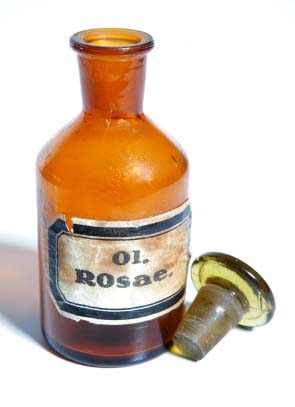The Natural Perfume Academy was first established in 2008 to provide education to aspiring natural and botanical perfumers, natural perfume enthusiasts, and entrepreneurs interested in creating and marketing natural and botanical perfumes.
Distance Learning with Natural Perfumery Academy Course provides the total professional development needed by those entering into or progressing in the natural perfumery industry. Ms Justine Crane is the academy teacher with Ms. Shelly Waddington as auxiliary tutor. The Academy uses Moodle, a powerful learning platform used by major colleges around the world. It is administered at all times by fully trained technical staff.
The Natural Perfume Academy has made use of the original perfumery course material devised by such authorities on the subject as Septimus Piesse, creator of the Odophone, a scale denoting parts of a perfume (head, heart, base), published in 1857 by Edward Sagarin in his book The Art of Perfumery and the Methods of Obtaining the Odours of Plants, and from the works of Jean Carles, Perfumer, published as reprinted articles ((1961, 1962 & 1963) from the French magazine "Recherches" into William Kaufman's coffee table tome "Perfume", published 1974.
We have found that the need for adaptable facilities for natural perfumery training is growing due to the fact that in the increasingly restrictive environment, independent natural perfumers need tailor-made training geared towards regulatory compliance and safety. It is also the case that apprenticeships in perfumery involving the sole use of natural materials are difficult if not impossible to secure. Traveling long distances to attend courses is highly impractical, and these days, unnecessary. Furthermore in light of the worldwide expansion of the natural botanical perfume industry, there are increasing demands that natural perfumers be capable and highly trained.
Natural Perfume Academy Course structure in detail
Unit 1 History of Natural Botanical Perfumery
The history of Natural Botanical Perfumery spans millennia, with records going back some 4000 years or more. This is a brief, though somewhat dubious, history of perfume, which includes "modern perfumery" and its inclusion of synthetically produced raw materials.
Unit 2 Safety, regulatory and environmental issues
This unit will provide students with the necessary theory to understand and apply selected key safety assessments (e.g. compliance with IFRA guidelines), familiarise students with selected key regulatory frameworks (e.g. EU cosmetics directive).
Unit 3 Chemistry of Natural Fragrance
A brief overview of chemicals within natural raw materials which produce the scents with which we, as Natural Botanical Perfumers, are so familiar.
Unit 4 Perfumers Studio & Resources
This portion of the course focuses on the tools necessary for a perfumery student to formulate basic compositions and compounds. The tools are fairly standard and can be purchased online or at a department or drug store.
Unit 5 The Natural Perfumers Palette
The raw materials available to today’s natural & botanical perfumer are far more numerous than they were for our predecessors. Where their palettes were restricted to a few dozen or so essences, ours has been greatly expanded to include hundreds of materials.
 Unit 6 Evaluating Natural Perfumery Materials
Unit 6 Evaluating Natural Perfumery Materials
All raw materials must be evaluated by the perfumer prior to their use in a perfume. The perfumer needs to become familiar with the note category or categories, character and safe usage levels of each material.
Unit 7 Journaling & Creating a Perfume
You will reach a point in your perfume making studies when you will require knowledge of advanced tools and techniques to create larger volumes of perfume. It is important that you study diligently all the information and materials provided by the course in the earlier lessons in order to successfully move onto the advanced stage of instruction.
Unit 8 Base Building, Conceptualizing Perfume
Perfume begins on paper. Before you open a bottle or waft a scent strip, the first order of building a perfume begins with the inspiration, and the ideas are written down in detail.
Unit 9 Natural Isolates
Upon completion of this unit, the student will have a basic understanding of natural isolates and will be ready to begin blending using these fragrance materials.
Unit 10 Marketing & Financial Management
A module introducing the basic principals of marketing in the natural botanical perfume industry and financial background for natural perfumery management. The focus is on financial management and costings.
Unit 11 Essay & Creative Proposal
With guidance from the tutor the student will propose the creative assignment and essay for the end of year perfume submission.
Unit 12 Essay & Perfume Submission
Student finalises and submits the end of the year essay along with the creative assignment perfume submission for tutor evaluation. Student recieves evaluations and end of year certificates.
 Unit 6 Evaluating Natural Perfumery Materials
Unit 6 Evaluating Natural Perfumery Materials
No comments:
Post a Comment